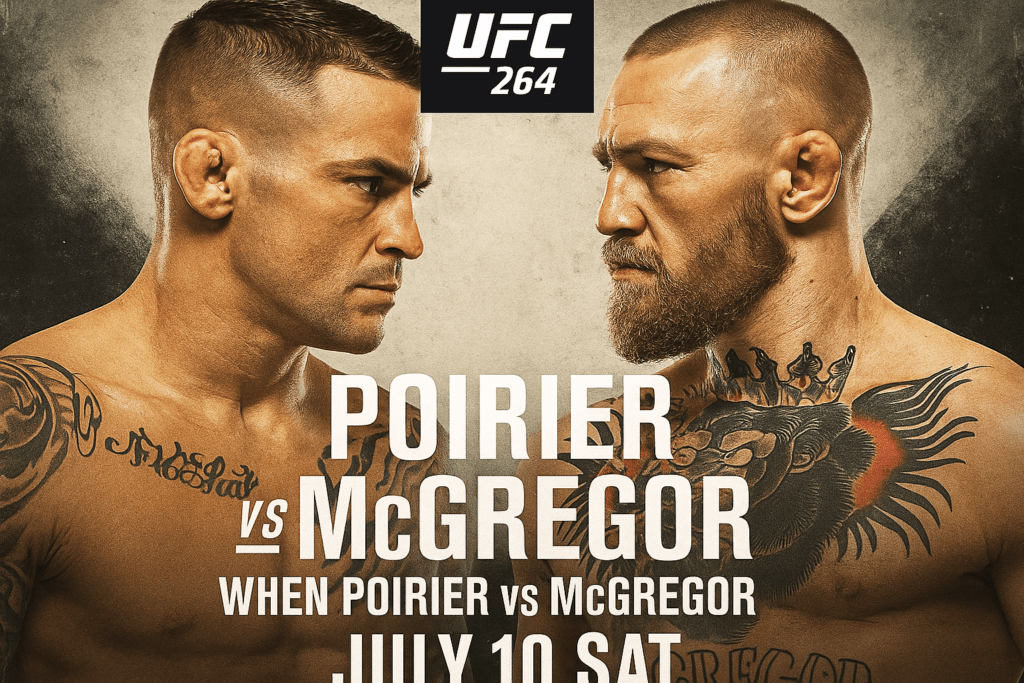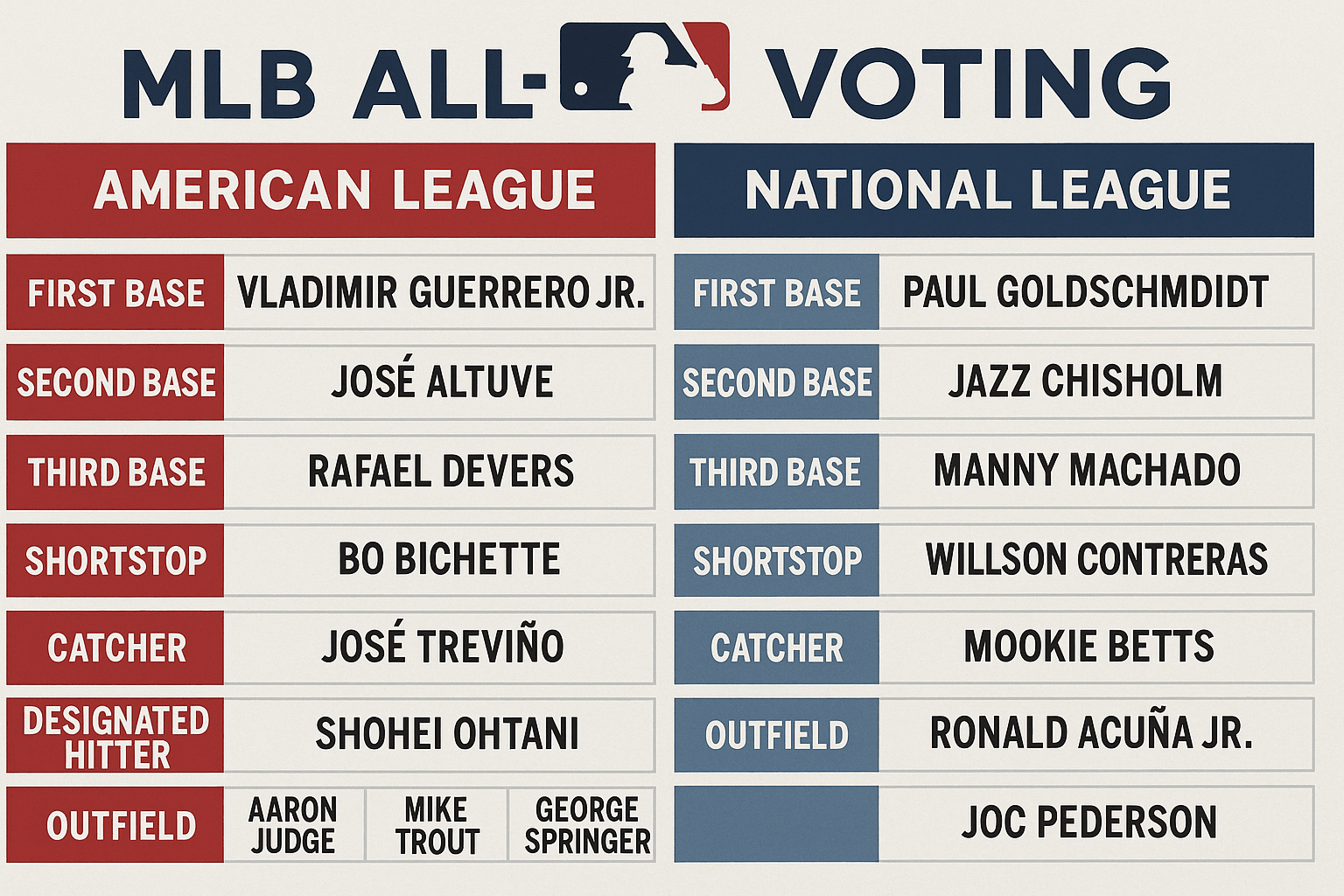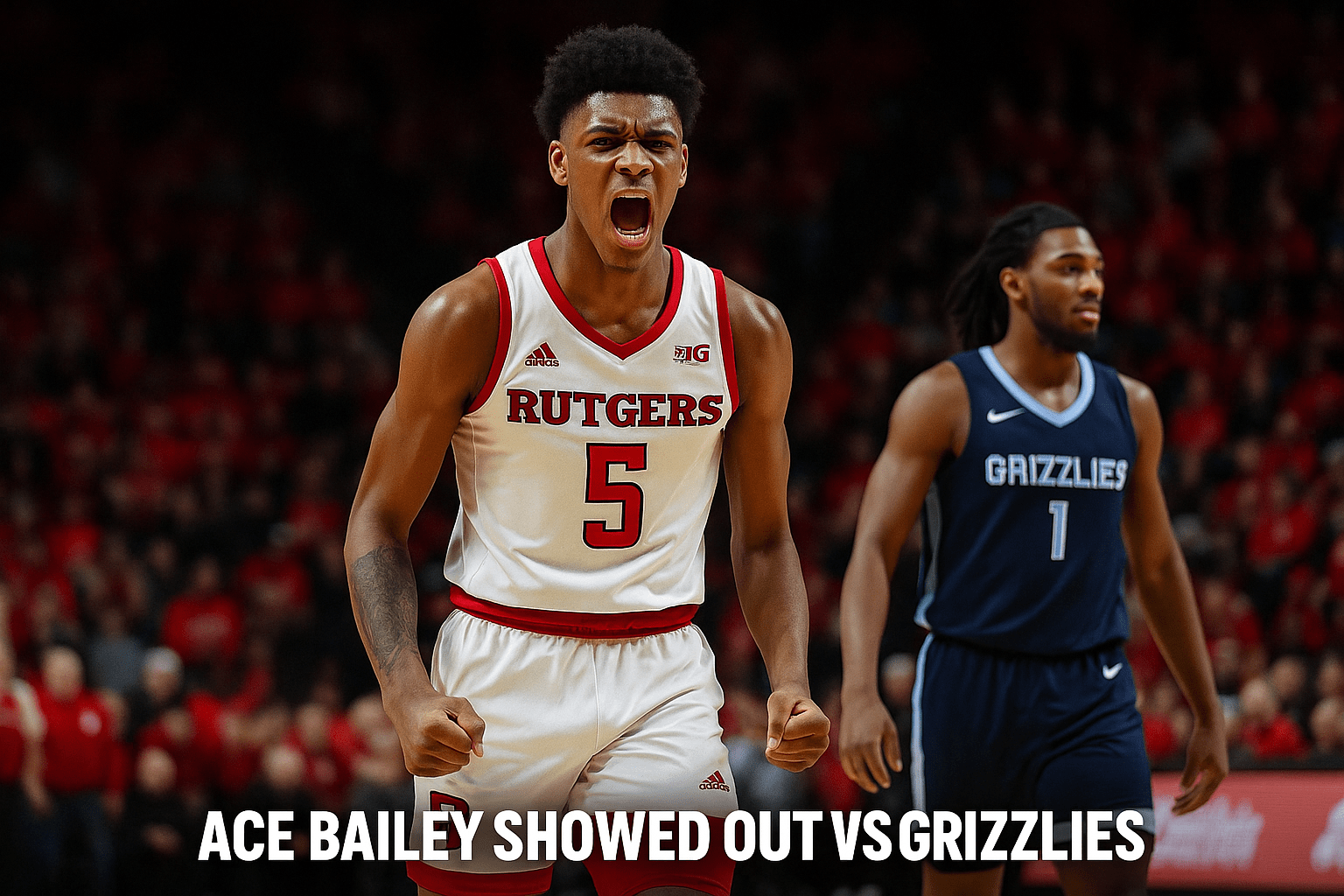It didn’t start in the cage. Not really. The final chapter of the Poirier vs McGregor trilogy began in the pauses between punches, in the stares across press conference tables, in the weight of unfinished business. When two men meet more than once, it stops being just about fighting. It becomes personal. UFC 264 wasn’t built for entertainment. It was born from history, resentment, and a very real need for resolution.
Two men, a sold-out arena, and one question hovering in the air: was this going to be McGregor’s redemption or Poirier’s coronation?
When Glory Becomes Obsession
At one point, Conor McGregor was the most magnetic force in combat sports. Not just in the UFC. Everywhere. He didn’t walk into fights—he marched. With fire in his eyes and chaos in his mouth. He broke down opponents mentally before a single punch was thrown.
But by the time UFC 264 arrived in Las Vegas on July 10, 2021, the shine had dimmed. His star hadn’t faded entirely—his name still lit up arenas—but it flickered. There were questions now. Doubts. Whispers of the old McGregor, and whether he still existed.
And then there was Dustin Poirier. Steady. Patient. No flash. Just a fire that burned slower but deeper. He had walked through defeats, rebuilt from them, and evolved into something sharper. He had already beaten McGregor at UFC 257, stripping away the myth of invincibility with vicious calf kicks and precise power. But one win wasn’t enough. He needed closure.
UFC 264 was the door they both had to walk through—one would come out a warrior, the other a warning.
The Vibe That Night: Thick With Tension
Step inside the T-Mobile Arena that night, and it was electric. Not in a manufactured way. It was something else—tight, nervous, almost suffocating. Fans didn’t come for a display of martial arts. They came for blood, truth, and fallout.
McGregor came out fast. Wild. Throwing kicks early, circling, posturing. It was vintage Conor—but with something underneath, something desperate. This wasn’t the same calculated sniper from his early rise. This was rage in motion.
Poirier waited. Absorbed. Countered. And when the fight hit the ground, he didn’t just survive—he dominated. The control was immediate. McGregor tried a guillotine, but Poirier escaped easily, landed elbows, short punches, and drove pressure like a freight train.
And then—the break.
Seconds before the round ended, McGregor threw a step-back. His leg gave out. It wasn’t a strike. It was his own movement. His ankle folded. Just like that, the crowd fell into silence.
No final exchange. No knockout. Just an ending written in bone and shock.
The Fallout: Silence Louder Than Noise
McGregor, now sitting against the cage, legs mangled, refused to let go. Not of the microphone. Not of the moment. Even in pain, he screamed defiance, aimed venom at Poirier, and reminded the world that even broken, he was still loud.
But it rang hollow. The chaos that once felt clever now felt off. That night, Poirier vs McGregor didn’t just end a trilogy—it ended a chapter of UFC mythology.
Dustin stood tall, but he didn’t celebrate. He didn’t need to. His eyes told the story. He knew what this meant. He hadn’t just won a fight. He had buried a ghost.
Breaking Down the Numbers: What the Stats Said
Behind the flash and fury, the player stats told a story of dominance:
Dustin Poirier
- Significant Strikes: 36
- Ground Control: 2:45
- Ground Strikes Landed: 43
- Takedowns: 1
Conor McGregor
- Significant Strikes: 27
- Submission Attempts: 1 (failed guillotine)
- Strikes on the Ground: Minimal
- Injury: Broken tibia
The stats don’t lie. McGregor started fast, but Poirier was measured, smart, and surgical. On the ground, he took over. If the leg break hadn’t ended it, momentum suggested Poirier might have anyway.
A Legacy Rewritten, A Spotlight Fading
When McGregor exploded onto the UFC scene, he made everyone believe. In himself. In magic. In knockout predictions. At his peak, he was untouchable. But UFC 264 pulled back the curtain. The fighter once known for mystique was now defined by moments of frustration, flashes of the past, and an injury that spoke louder than any promo ever could.
Does he still have fights left? Of course. But the myth? It cracked. And Poirier did the cracking.
Poirier didn’t become a superstar overnight. He fought through dust, through doubt. He built his legacy slowly, brick by brick. And at UFC 264, he wasn’t just better—he was complete.
The Rivalry, In Hindsight
- UFC 178 (2014): McGregor wins via TKO in Round 1.
- UFC 257 (2021): Poirier wins via TKO in Round 2.
- UFC 264 (2021): Poirier wins via Doctor Stoppage (leg injury).
Each fight tells a different story. The first was power. The second was precision. The third? Control. Poirier earned that 2–1. And no matter what McGregor says into a mic or writes on Twitter, history remembers the outcome.
The Bigger Picture: What UFC 264 Meant
The fight wasn’t just about two men. It symbolized something larger. For the UFC, it proved that hype is temporary—but grit lasts. For fans, it reminded everyone that fights aren’t won on talk shows. They’re won in the cage, under pressure, with blood and sweat.
It was a shift. From the loud to the learned. From the flashy to the focused.
Poirier emerged as a face the UFC needed—respected, resilient, and real. And while McGregor still holds headlines, UFC 264 marked the moment he stopped chasing belts and started chasing relevance.
Takeaways That Still Echo
- UFC 264 was more than just a trilogy closer. It was the collision of narrative, ego, and evolution.
- Poirier vs McGregor highlighted the difference between potential and preparation.
- McGregor vs Poirier showed that reputations can break just as quickly as bones.
- The fighter stats leaned heavily in Poirier’s favor, and even before the injury, he was in command.
- The UFC as a brand leaned forward into a new era that night—and it didn’t include mysticism. It included merit.
Sometimes fights don’t end with the bell. They end with realization. With silence. With a legacy shifting before your eyes.
That’s what UFC 264 gave us. Not a highlight, but a turning point.
And no matter how many times McGregor vs Poirier is replayed or discussed, that break—both literal and symbolic—will always mark the moment when one man fell, and the other stood up to stay.




